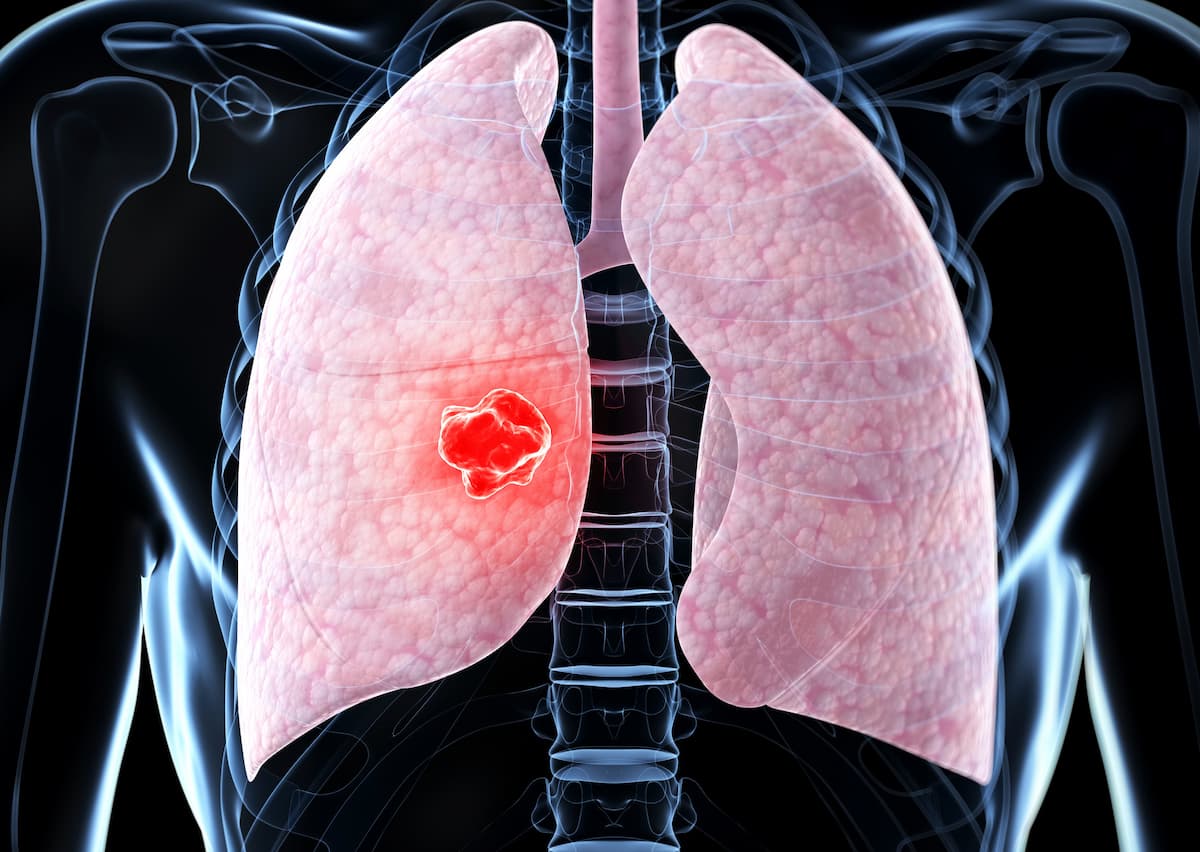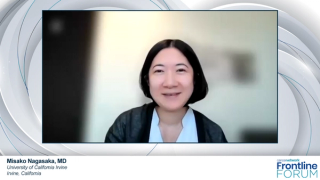
Non-Small Cell Lung Cancer (NSCLC)
Latest News
Latest Videos
CME Content
More News

The results of the phase 3 LUNAR trial evaluating tumor treating fields plus standard-of-care therapies among patients with metastatic non–small cell lung cancer are “encouraging,” according to an expert from Winship Cancer Institute of Emory University.

Adding pembrolizumab to chemotherapy shows little increase in adverse effects among patients with metastatic nonsquamous non–small cell lung cancer in the phase 3 KEYNOTE-789 trial.

Sunvozertinib shows a similar safety profile to other EGFR tyrosine kinase inhibitors in the treatment of EGFR wild-type non–small cell lung cancer in the WO-KONH6 study.

Datopotamab deruxtecan plus pembrolizumab produces no new safety signals in the treatment of patients with advanced non–small cell lung cancer in the phase 1b TROPION-Lung02 trial.

Nivolumab plus ipilimumab and chemotherapy also appears to produce a higher overall response rate compared with chemotherapy alone among those with squamous non–small cell lung cancer in the phase 3 CheckMate 9LA trial.

Patients who receive nivolumab plus chemotherapy for non–small cell lung cancer may experience sustained improvement in time to death or distant metastasis, according to an expert from McGill University Health Center.

Rilvegostomig appears to yield no dose-limiting toxicities among patients with advanced or metastatic PD-L1–positive non–small cell lung cancer in the phase 1/2 ARTEMIDE-01 study.

ADAURA included patients at least 18 years of age with completely resected stage IB to IIIA nonsquamous NSCLC who harbored EGFR exon 19 deletions or exon 21 L858R mutations.

For patients with early-stage non–small cell lung cancer, the addition of pembrolizumab to neoadjuvant platinum-based chemotherapy followed by resection and adjuvant pembrolizumab as a monotherapy results in a significant improvement in event-free survival and pathological response.

The safety review committee of the phase 1/2 Acclaim-1 trial identifies a recommended phase 2 dose of quaratusugene ozeplasmid plus osimertinib in the management of advanced non–small cell lung cancer.

Data from the phase 3 CheckMate 816 trial support the European Medicines Agency’s Committee for Medicinal Products for Human Use recommendation to approve nivolumab plus platinum-based chemotherapy as a treatment for resectable non–small cell lung cancer.

Findings from the registrational phase 1/2 TRIDENT-1 trial support the new drug application for repotrectinib in the treatment of those with ROS1-positive advanced or metastatic non–small cell lung cancer.
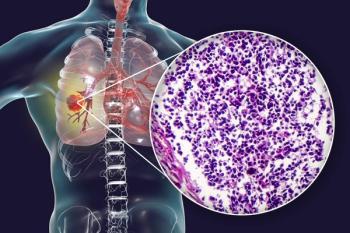
Patients with nonsquamous non–small cell lung cancer experiencing clinical benefit with sitravatinib plus nivolumab in the phase 3 SAPPHIRE trial are eligible to remain on treatment.

Safety findings from the phase 3 FLAURA2 trial appear to be consistent with the known profiles of osimertinib and chemotherapy for the treatment of those with EGFR-mutated non–small cell lung cancer.

Findings from the phase 3 ORIENT-31 trial support the use of sintilimab plus chemotherapy as a potential novel treatment strategy for those with EGFR-mutated nonsquamous non–small cell lung cancer.
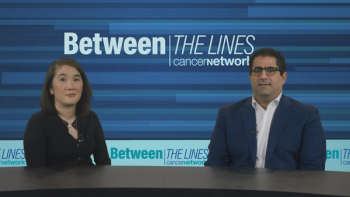
Helena A. Yu, MD, and Joshua K. Sabari, MD, look to the future of frontline treatment in EGFR exon 20–mutated non–small cell lung cancer.

The FDA’s approval of the FoundationOne Liquid CDx assay may improve access to treatment with mobocertinib for patients with non–small cell lung cancer harboring EGFR exon 20 insertion mutations.
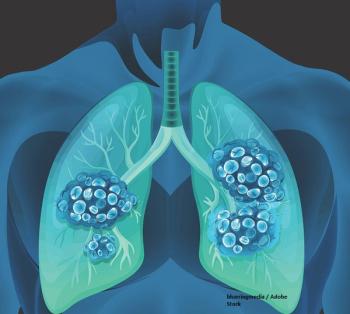
Patients in Canada who have advanced non–small cell lung cancer can now receive cemiplimab plus chemotherapy as a first-line treatment following Health Canada’s approval of the regimen.

THIO plus cemiplimab does not appear to yield any dose-limiting toxicities or significant treatment-related adverse effects in patients with advanced non–small cell lung cancer.

Lung cancer experts discuss how these real-world data comparing amivantamab with alternative therapies may impact their clinical practice.

Joshua K. Sabari, MD, and Helena A. Yu, MD, discuss real-world data comparing amivantamab with other therapies in EGFR exon 20–mutated non–small cell lung cancer.

An update to the ASTRO and ESTRO clinical guidelines highlights the importance of a multidisciplinary approach to treating oligometastatic non–small cell lung cancer.

Toripalimab plus chemotherapy appears tolerable in patients with resectable stage III non–small cell lung cancer, according to an expert from Shanghai Lung Cancer Center.

A comprehensive overview of the methods utilized in a real-world analysis of amivantamab vs other therapies in patients with EGFR exon 20–mutated NSCLC.

Expert oncologists review the CHRYSALIS trial, which resulted in the approval of amivantamab in the second line for patients with locally advanced or metastatic NSCLC with exon 20 mutations.






